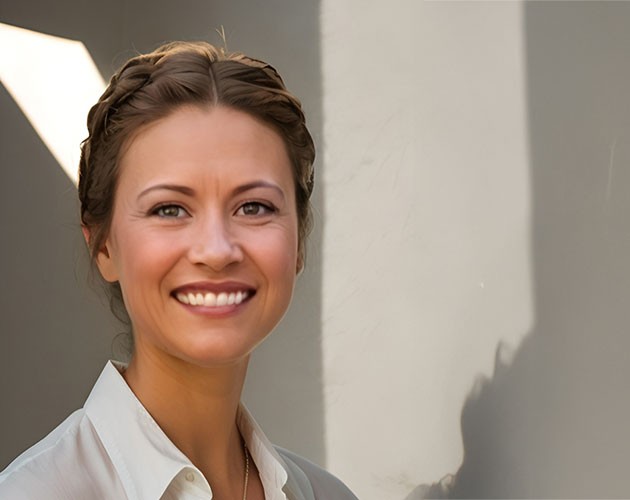Paths to a Clinical Laboratory Scientist Career

"I particularly enjoy the impacts I can bring in helping patients’ well-being with precise disease detection and pathogenic analysis," Clinical Laboratory Scientist Preparatory Program graduate PingWah Poon says.
With this interest in mind, PingWah turned toward a career as a clinical laboratory scientist. But how to get started? Despite careful searching on the Internet, he found little information or resources detailing how to actually become a clinical laboratory scientist. What was the first step?
It's an unfortunate situation because there is a huge demand for clinical laboratory scientists—the Bureau of Labor Statistics projects a 17% job growth rate from now until 2030—yet so many aspiring professionals just don't know where to start.
“As the role of the laboratory becomes increasingly important as a partner to all health care providers, laboratory professionals will be more incorporated in the overall process of delivering quality care, which includes making the right decision for test selection, providing accurate and timely results, and supporting the result interpretation,” says Dr. Thomas Kampfrath, instructor for Quantitative Analysis: Applications in Clinical Chemistry and medical officer at Siemens Healthineers.
Inside the Quantitative Analysis: Applications in Clinical Chemistry Course
With an obvious need and depth of roles available for a clinical laboratory scientist, is this field right for you?
What Exactly Does a CLS Do?
Perform sophisticated clinical diagnostic tests
Evaluate and interpret laboratory results—oftentimes, consulting with physicians
Research and evaluate new test methodologies
This work also lends itself to advancements into management positions!
Is your interest piqued? Then read on to learn how you can be academically proficient to fill one of the many empty CLS positions.
Your Path
Step 1: Complete your bachelor’s degree—typically in the sciences, such as biology or chemistry.
Step 2: Receive a CLS Trainee License
In California, the Department of Public Health Laboratory Field Services office issues the CLS trainee license. This permits you to train in a California clinical laboratory setting.
To receive your license, you must have completed:
- 18 semester units of biology (must include medical microbiology, hematology and immunology)
- 16 semester units of chemistry (must include analytical chemistry—such as quantitative analysis—and biochemistry)
- 3 semester units of physics (must include course instruction on principles of light and electricity)
If you are applying to a specialized training program, the academic requirements will differ for the specific discipline.
If you apply to a training program outside of California, please be sure to contact the individual programs to learn about specifics, including whether a trainee license is required.
Step 3: Research Your Ideal CLS Training Program
When deciding which CLS training program to apply to, consider the following:
Do you want a generalist versus a specialist training program?
A generalist program exposes trainees to disciplines within the CLS profession, such as chemistry, bloodbanking, microbiology, immunology, hematology, molecular/cytogenetics and other areas. Training as a generalist allows job placement in any discipline within the laboratory.
A specialist program provides specific training in a particular discipline. Note that you would be limited to working in the specific discipline that you were trained in.
Another thing to consider is cost and funding. Tuition and stipends vary by training program, and some programs may provide students with a monthly stipend while they are studying. Tuition can also vary between programs, from free to several thousand dollars.
The coursework and training format can also vary. Some programs offer a separated versus an integrated lecture/lab training delivery format. For example, an integrated lecture/lab format might hold lectures once per week while students undergo laboratory training four days per week.
Step 4: Prepare to Be a Competitive Applicant to a CLS Training Program
Through our Clinical Laboratory Scientist Preparatory Program, we offer a variety of basic science and upper-division science courses that will help you fulfill prerequisites that are required to apply to CLS training programs.
Our courses include:
quantitative analysis in clinical chemistry application
and more!
We also offer laboratory courses, including a microbiology laboratory and a virtual hematology laboratory.
A unique aspect of our program is that all courses are available and accessible to the general public and are not subject to any enrollment restrictions. Other institutions may prioritize course enrollment to students who have matriculated into their degree programs.
“The classes offered, while at times challenging, were also very engaging and quite enjoyable,” says graduate Ester Fernandez. “I would also suggest taking as many of the laboratory classes that coincide with the lectures as possible. My knowledge of hematology grew immensely after taking the hematology lab course, and the extra lab is what solidified my knowledge on the subject.”
Step 5: Be Admitted Into and Complete a CLS Training Program
Coursework requirements for individual CLS training programs may differ. Some training programs may require anatomy, physiology, genetics, molecular biology, additional laboratory coursework, or calculus and statistics. Our Clinical Laboratory Scientist Preparatory Program ensures that you’ve met all academic requirements.
Step 6: Complete the American Society for Clinical Pathology (ASCP) Certification Exam and California State Law Quiz
The ASCP Board of Certification is an administratively independent certification agency that prepares relevant standards and develops procedures that will assure the competence of medical laboratory personnel.
The ASCP Board of Certification certifies those individuals who meet the academic and clinical prerequisites and who achieve acceptable performance levels on examinations. Determine your examination category and route and gather required documentation to meet the eligibility requirements. The BOC Eligibility Assistant found on the BOC website can help you determine if you meet the current requirements.
Step 7: Apply for a California Clinical Laboratory Scientist License
Laboratory Field Services (LFS) requires applicants to submit documentation of academic coursework, clinical training and work experience to qualify for licensure. Review their requirements.
Are you ready to have our Clinical Laboratory Scientist Preparatory Program as part of your journey to a rewarding career? Then get started with a course!

